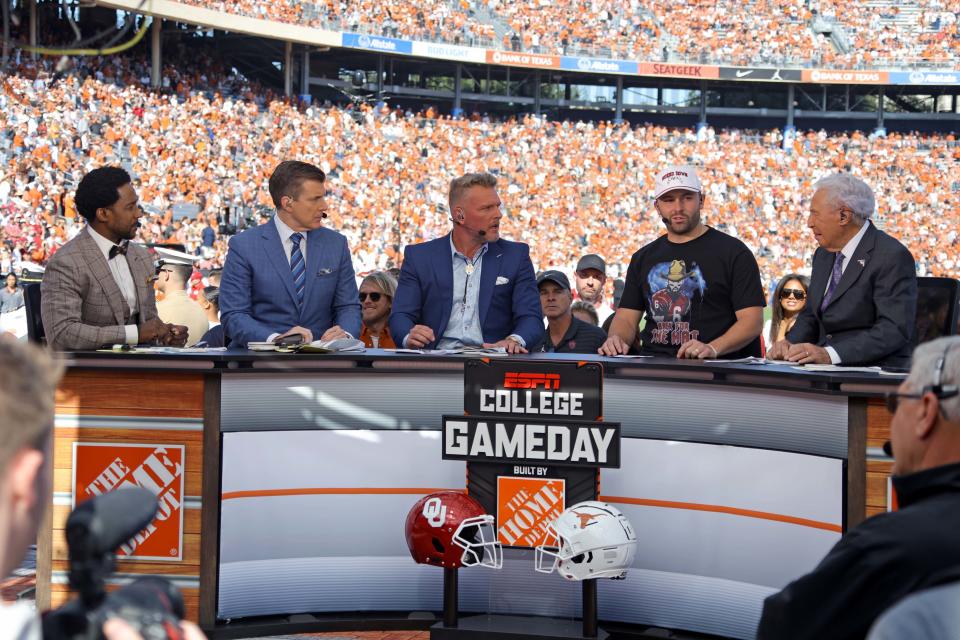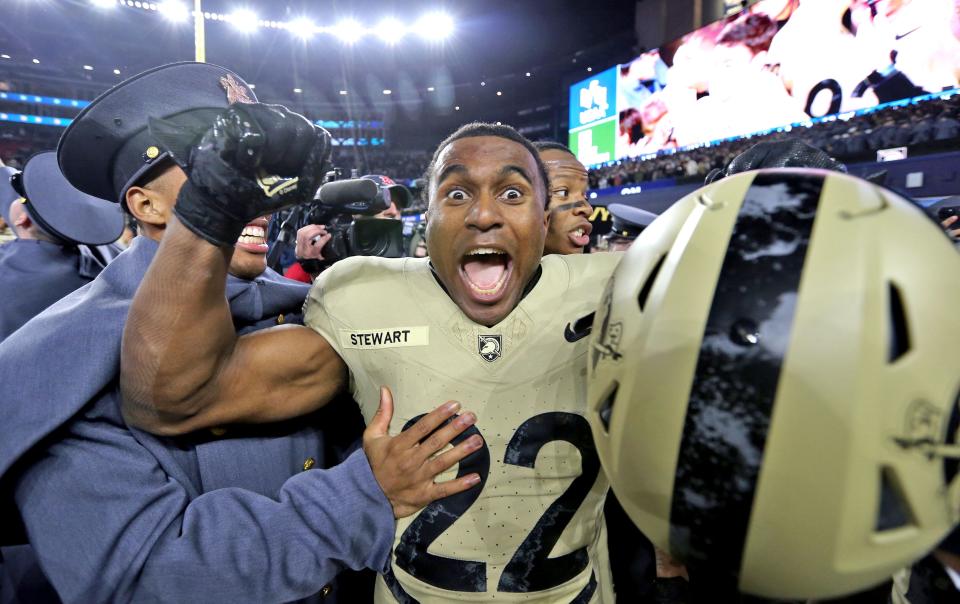Networks hold too much power over college football, and it's ruining what was a great game
Last week, we discussed the health of college football and the chaos that exists. Let's address the greatest threat of all to the competitiveness of the sport — that is, the monopoly that is college football. What am I talking about? I'm talking about television networks and the stranglehold they have on the sport. ABC, NBC, CBS, ESPN, FOX and others who control the time teams play and more importantly, who they play against.
That's right — the expansion of the Big Ten to include four Pac 12 teams had to be approved by the networks, which exercise dominion and influence over the conferences they pay to broadcast their games. Same with the SEC and Texas and Oklahoma joining next year. That's the dirty little secret. Without the networks and all the money they offer, there would be no incentive to break up conferences (and ultimately lead to their demise — PAC 12, Southwest , Big 8). They are the brokers of the game who demand access to areas of the field long ago considered to be out of bounds. They are the true villains in this mess, and it's only getting worse. The conferences are not immune from criticism. They understand that it is in their best interests that every network gets a piece of the pie. Keep them all happy and vested partners.
More: 'Power and influence' found its way into the College Football Playoffs. What a shame

It's the same model the NFL uses, only on a much higher scale. The difference at the professional level is they share all the proceeds equally among the teams and there is a salary cap so everyone can compete at the same level. In college football, the networks only care about ratings and a return on their investment. To maximize that return, consolidating elite teams into two "major leagues" will only increase those figures. That's also why irrelevant bowls — which are played in front of half full to empty stadia — are ripe for television. Those networks, primarily ESPN, pay big bucks to televise them. It's a problem which will only grow as the disparity gets worse between the blue-blood programs and the nobodies.
Transfer portal's timing is bad for the game
The transfer portal opened on Dec. 4 and runs until Jan. 2, 2024. Thousands of players are in the portal so they can search for their best deal and opportunity as free agents and are pressed to move quickly before those opportunities disappear. Opportunities can be a financial benefit or playing immediately. I'm not sure how important coaching staff, facilities or even academics is to the players these days. We've told you before the term student-athlete is an oxymoron in Division I college football. What is most absurd here is that there are players on College Football Playoff teams who have had to make a decision before they play in a CFP semifinal and literally transfer before their team plays on Jan. 1. How ridiculous is that? The NCAA, which regulates the portal, simply needs to move the portal date one month later after the final is played. That would prohibit players from enrolling at their new schools for the second semester so it won't happen. Texas backup quarterback Maalik Murphy is the latest to leave for the transfer portal and will not be available for the Long Horns. He sated "I hate it. I'm super invested in this team... It's hard to walk away, especially at this point." OK, then, stay. The thinking now is there should be no difference between a student-athlete and a non-student-athlete. He/she can simply leave and apply to another school anytime. While that works for many, it is not a model which can be sustained in college football. Murphy did what was best for him and not for the team. As stated here many times "If I ain't playing, I ain't staying." Add the monetary component and you have a recipe for disaster.
Army-Navy Game has special meaning
Finally made an Army-Navy game last week. Lots of comments about this being only the third time in its 124thyear that the game has left the Mid-Atlantic states. There simply is no other comparable environment in sports. Bucket list item. One does not have to be a college football fan to appreciate what the game represents as well as all seeing the festivities which occur prior to the game. Every American should experience the display of patriotism, the flyovers, the large contingencies of service members who attend and yes, the battle on the football field, for what it is — an absolute privilege to witness. And that's all coming from a father with a child currently in the Air Force.

Money is now the top incentive to lure players
The lifeline of any college football team used to be recruiting. While still significant, you can rebuild your program more quickly with juniors and seniors via NIL. That certainly was Coach Prime's approach at Colorado. Commitments for this initial period will be announced Dec. 20. Money is now the No. 1 factor for the top recruits and even if you get that commitment, it may only be for one year before he's back on the market as a free agent. Sad but true.
Bet on the NCAA to lose this legal battle ... again
The NCAA, which regularly loses in the courts, saw six states file suit against it alleging it is violating the Sherman Anti-Trust Act by placing restrictions on players who transfer twice from immediately being eligible with their new school. A Judge in West Virginia issued a temporary 14-day restraining order which prevents the enforcement of the NCAA's rule regarding transferring for a second time, alleging it "unjustifiably restrains the ability of these college athletes to engage in the market for their labor as NCAA Division 1 college athletes." Their agents are chomping at the bit. It was stated only here long ago that the rule was ambiguous and simply not enforced in its current form because of it's ambiguous and discretionary interpretation. Now there is another issue regarding its possible violation of federal law. The NCAA should waive the white flag. Bet on the NCAA to keep their losing streak alive.
followtheschreib61@gmail.com
This article originally appeared on The Providence Journal: Ken Schreiber: TV networks are ruining college football

